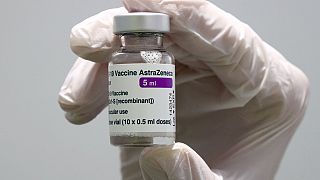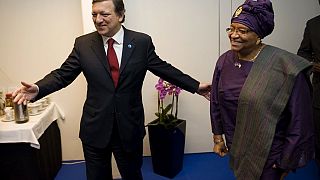pandemic
Government negotiators, advocacy groups and others have been working inside the U.N. health agency's HQ in Geneva since April 29th to finalise the world’s first pandemic agreement.
The WHO’s 194 member countries asked the body to oversee talks in 2021.
The negotiations have been arduous but the co-chair of the Intergovernmental Negotiating Body on a pandemic accord said on May 3rd that the goal was worth the efforts.
"It's one of the first and one of the few legally binding instruments worldwide we would have on health and pandemics and what happened in the last couple of years with the Covid crisis, proved that the world was not well prepared to work together in fighting and preventing pandemics from happening, which cost many lives," Roland Driece told the press.
"We do everything we can with this instrument to make that situation better than it was before."
The accord is attempting to address the gap that occurred between COVID-19 vaccines in rich and poorer countries, which WHO Director-General Tedros Adhanom said amounted to “a catastrophic moral failure.”
READ ALSO: Monkeypox: Avoid repeat of Covid "inequities" in Africa, WHO regional director urges
The draft says WHO should get 20% of the production of pandemic-related products like tests, treatments and vaccines and urges countries to disclose their deals with private companies.
The accord's aim: guidelines for how the WHO's 194 member countries might stop future pandemics and better share scarce resources.
"On difficult issues, I would imagine that countries are trying to find a middle ground on what would work best, to help prepare and prevent (pandemics), I guess it's a matter of emphasis - whether you emphasize equity or you emphasize prevention, but they're both important, because from what has happened with Covid, we know that equity was a problem within countries, between countries. So it's not an either-or," Dr. Precious Matsoso, co-chair of the Intergovernmental Negotiating Body on a pandemic accord said.
"Solo" strategy
Suerie Moon, co-director of the Global Health Center at Geneva’s Graduate Institute, pointed to divisions on issues like access to vaccines and financing of ways to improve preparedness.
"If we can agree on a common set of rules that would both commit countries to share information quickly and commit countries and companies to share technologies quickly. That would be in everybody's best interest. But we're not there yet," she said.
But experts warn there are virtually no consequences for countries that don’t comply.
There are legally binding obligations under the International Health Regulations, including quickly reporting dangerous new outbreaks. But those have been flouted repeatedly.
U.S. senators wrote a letter to the Biden administration last week critical of the draft for focusing on issues like “shredding intellectual property rights” and “supercharging the WHO." They urged Biden not to sign off.
Britain's Department of Health said it would only agree to an accord if it was “firmly in the U.K. national interest and respects national sovereignty.”
READ ALSO: Rwanda: Construction of first mRNA vaccine factory reaches key phase
And many developing countries say it's unfair they might be expected to provide virus samples to help develop vaccines and treatments, but then be unable to afford them.
Some countries appear to be moving on their own to ensure cooperation from others in the next pandemic.
Last month, US President Joe Biden’s administration said it would help 50 countries respond to new outbreaks and prevent global spread, giving the country leverage should it need critical information or materials in the future.
The ninth and final round of talks is scheduled to end Friday (May 10).
If the negotiators reach a draft, it will be a critical milestone ahead of the 77th World Health Assembly, starting May 27, at which Member States are scheduled to consider the proposed text of the world’s first pandemic agreement for adoption.













Go to video
Over 40 killed in attack on Sudanese hospital: WHO Chief condemns “Appalling” strike
01:29
US medication safety agency approves biannual preventive HIV shot
Go to video
Ghana confirms 34 new Mpox cases, total rises to 79
01:07
WHO says the mpox outbreak remains a public health concern
01:02
As cholera cases surge, African leaders urge local production of vaccine
01:34
Flavored tobacco products luring youth to addiction, death - WHO